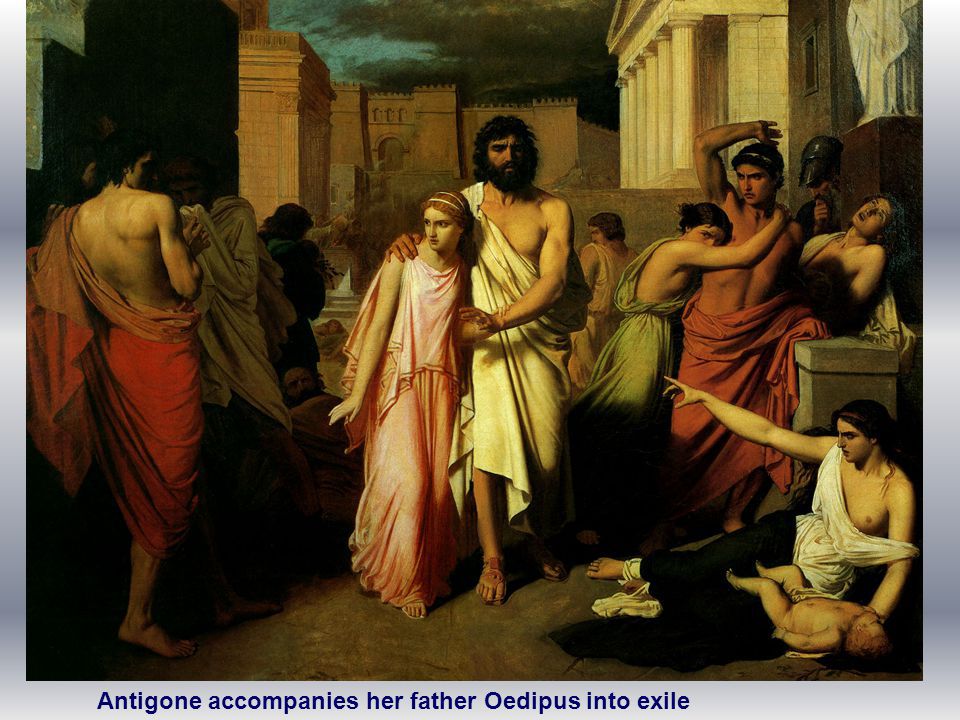Plutarch, On Exile 604a
But ‘exile’ is an insult. Indeed, it is such among fools who use as slander “poor man”, “bald”, “short”, and, by god, “foreigner” or “immigrant”. But, truly, those who are not obsessed by these insults find wonder in good people, whether they are poor, foreigners, or exiles.”
Ἀλλ᾿ ἐπονείδιστον ὁ φυγάς ἐστι. παρά γε τοῖς ἄφροσιν, οἳ καὶ “τὸν πτωχὸν” λοιδόρημα
ποιοῦνται καὶ “τὸν φαλακρὸν” καὶ “τὸν μικρὸν” καὶ νὴ Δία “τὸν ξένον” καὶ “τὸν μέτοικον.” ἀλλὰ μὴν οἱ μὴ τούτοις ὑποφερόμενοι θαυμάζουσι τοὺς ἀγαθούς, κἂν πένητες ὦσι, κἂν ξένοι, κἂν φυγάδες.
Plato, Republic 6 499e-500a
“Friend, I said, Don’t completely dismiss the majority of people in this way. The certainly have a different opinion, if instead of picking fights with them you would show them the people you say are philosophers by persuading them and working against their prejudice against loving learning—if you distinguish it so that they will know what their nature and business is so that they don’t mistakenly think you are talking about different people.
And even if they don’t see it this way, will you claim that they are going to take up a different answer and answer differently? Or do you think that someone who is calm and kind will get angry at someone who isn’t difficult or be jealous of someone who isn’t jealous? I will start out by saying that so harsh a nature develops in only a few people, not the majority.”
Ὦ μακάριε, ἦν δ’ ἐγώ, μὴ πάνυ οὕτω τῶν πολλῶν κατηγόρει. ἀλλοίαν τοι δόξαν ἕξουσιν, ἐὰν αὐτοῖς μὴ φιλονικῶν ἀλλὰ παραμυθούμενος καὶ ἀπολυόμενος τὴν τῆς φιλομαθίας διαβολὴν ἐνδεικνύῃ οὓς λέγεις 500τοὺς φιλοσόφους, καὶ διορίζῃ ὥσπερ ἄρτι τήν τε φύσιν αὐτῶν καὶ τὴν ἐπιτήδευσιν, ἵνα μὴ ἡγῶνταί σε λέγειν οὓς αὐτοὶ οἴονται. καὶ ἐὰν οὕτω θεῶνται, ἀλλοίαν τοι6 φήσεις αὐτοὺς δόξαν λήψεσθαι καὶ ἄλλα †ἀποκρίνεσθαι. ἢ οἴει τινὰ χαλεπαίνειν τῷ μὴ χαλεπῷ ἢ | φθονεῖν τῷ μὴ φθονερῷ ἄφθονόν τε καὶ πρᾷον ὄντα; ἐγὼ μὲν γάρ σε προφθάσας λέγω ὅτι ἐν ὀλίγοις τισὶν ἡγοῦμαι, ἀλλ’ οὐκ ἐν τῷ πλήθει, χαλεπὴν οὕτω φύσιν γίγνεσθαι.
Epictetus’ Dissertationes ad Arriano Digestae 1.5
“Epictetus said that if someone resists what is clearly true, then it is not easy to devise an argument to persuade him to change his mind. This is due neither to the man’s strength or the teacher’s weakness, but instead because once someone has been assailed and hardens to stone, how could anyone prevail upon him with reason?
Men are hardened to reason in two ways: one is the petrification of thought; the other comes from shame, whenever someone is deployed in battle to such a degree that he will not acknowledge what is obvious or depart from his fellow combatants. Most of us fear the necrosis of our bodies and we will do anything to avoid having this happen in anyway; but we don’t think at all about the mortification of our mind. By Zeus, if a man is disposed in such a way concerning the mind itself that he can’t follow any argument or understand anything, we believe that he is ill. But if shame or self-regard hardens a man, we still persist in calling this strength!
Do you sense that you are awake? “No”, he answers, “Not more than when I imagine that I am awake while I dream.” The fantasy of dreaming differs in no way from being awake? “Not at all.”
How do I have a conversation with this man? What kind of fire or iron can I take to him to make him perceive that he has turned to stone? Although he realizes it, he pretends he does not. He is even worse than a corpse. One man does not perceive the conflict—he is sick. The other perceives it and neither moves nor responds—he is even worse. His sense of shame and his self-regard have been amputated and his reason has not been excised but instead has been mutilated.
Should I call this strength? May it not be so, unless I should also it strength when perverts do and say everything that occurs to them in public.”
ε′. Πρὸς τοὺς ᾿Ακαδημαικούς.
῎Αν τις, φησίν, ἐνίστηται πρὸς τὰ ἄγαν ἐκφανῆ, πρὸς τοῦτον οὐ ῥᾴδιόν ἐστιν εὑ<ρεῖν λόγ>ον, δι’ οὗ μεταπείσει τις αὐτόν. τοῦτο δ’ οὔτε παρὰ <τὴν ἐκεί>νου γίνεται δύναμιν οὔτε παρὰ τὴν τοῦ διδάσκοντος ἀσθένειαν, ἀλλ’ ὅταν ἀπαχθεὶς ἀπολιθωθῇ, πῶς ἔτι χρήσηταί τις αὐτῷ διὰ λόγου;
᾿Απολιθώσεις δ’ εἰσὶ διτταί· ἡ μὲν τοῦ νοητικοῦ ἀπολίθωσις, ἡ δὲ τοῦ ἐντρεπτικοῦ, ὅταν τις παρατεταγμένος ᾖ μὴ ἐπινεύειν τοῖς ἐναργέσι μηδ’ ἀπὸ τῶν μαχομένων ἀφίστασθαι. οἱ δὲ πολλοὶ τὴν μὲν σωματικὴν ἀπονέκρωσιν φοβούμεθα καὶ πάντ’ <ἂν> μηχανησαίμεθα ὑπὲρ τοῦ μὴ περιπεσεῖν τοιούτῳ τινί, τῆς ψυχῆς δ’ ἀπονεκρουμένης οὐδὲν ἡμῖν μέλει. καὶ νὴ Δία ἐπὶ αὐτῆς τῆς ψυχῆς ἂν μὲν ᾖ οὕτως διακείμενος, ὥστε μηδεν<ὶ> παρακολουθεῖν μηδὲ συνιέναι μηδέν, καὶ τοῦτον κακῶς ἔχειν οἰόμεθα· ἂν δέ τινος τὸ ἐντρεπτικὸν καὶ αἰδῆμον ἀπονεκρωθῇ, τοῦτο ἔτι καὶ δύναμιν καλοῦμεν.
Καταλαμβάνεις ὅτι ἐγρήγορας; ‘οὔ’, φησίν· ‘οὐδὲ γάρ, ὅταν ἐν τοῖς ὕπνοις φαντάζωμαι, ὅτι ἐγρήγορα’. οὐδὲν οὖν διαφέρει αὕτη ἡ φαντασία ἐκείνης; ‘οὐδέν’. ἔτι τούτῳ διαλέγομαι; καὶ ποῖον αὐτῷ πῦρ ἢ ποῖον σίδηρον προσαγάγω, ἵν’ αἴσθηται ὅτι νενέκρωται; αἰσθανόμενος οὐ προσποιεῖται· ἔτι χείρων ἐστὶ τοῦ νεκροῦ. μάχην οὗτος οὐ συνορᾷ· κακῶς ἔχει. συνορῶν οὗτος οὐ κινεῖται οὐδὲ προκόπτει· ἔτι ἀθλιώτερον ἔχει. ἐκτέτμηται τὸ αἰδῆμον αὐτοῦ καὶ ἐντρεπτικὸν καὶ τὸ λογικὸν οὐκ ἀποτέτμηται, ἀλλ’ ἀποτεθηρίωται. ταύτην ἐγὼ δύναμιν εἴπω; μὴ γένοιτο, εἰ μὴ καὶ τὴν τῶν κιναίδων, καθ’ ἣν πᾶν τὸ ἐπελθὸν ἐν μέσῳ καὶ ποιοῦσι καὶ λέγουσι.

Heraclitus, fr. 73
“It is not right to act and speak like men who are sleeping”
οὐ δεῖ ὥσπερ καθεύδοντας ποιεῖν καὶ λέγειν·
Share this:




